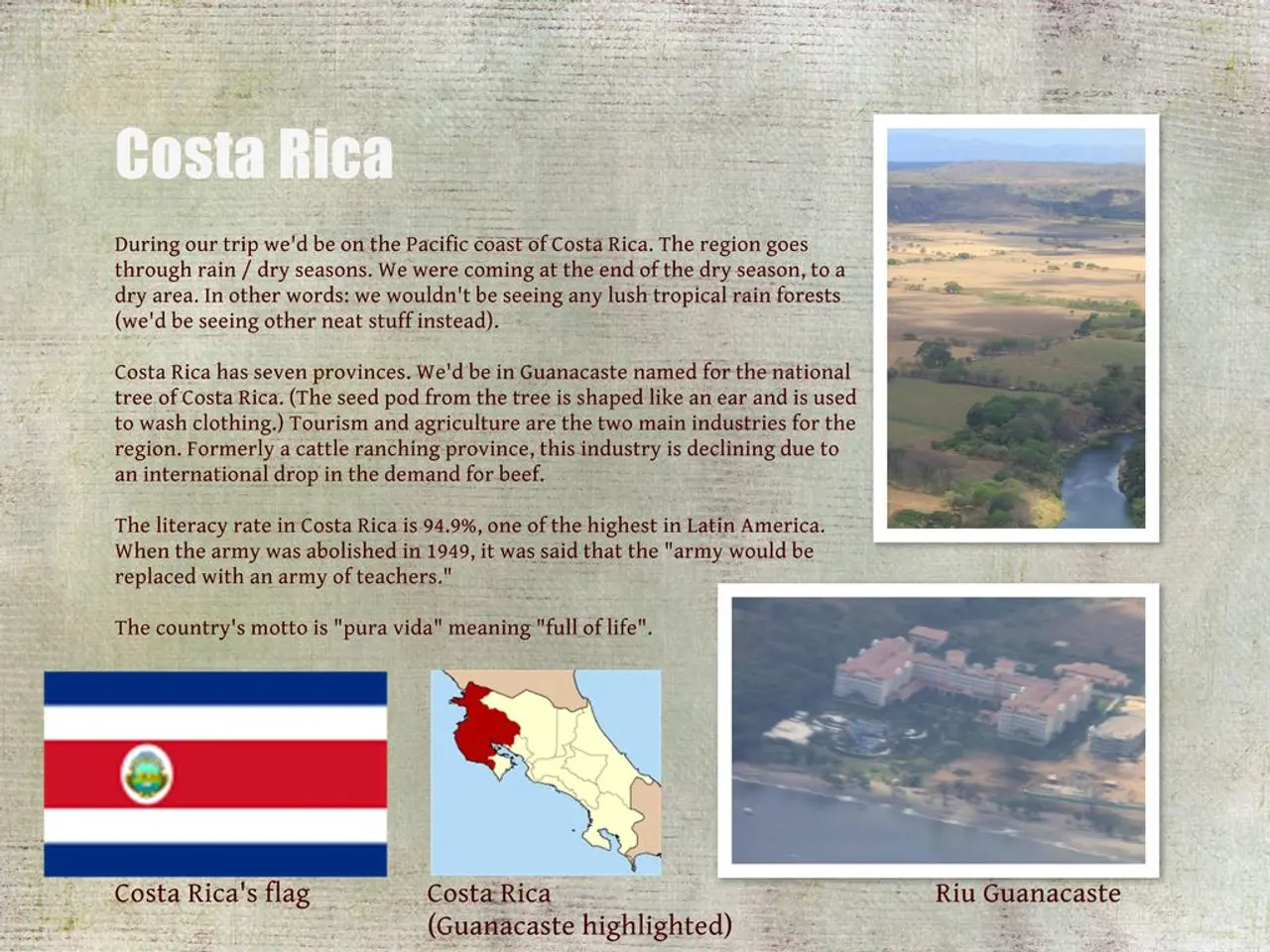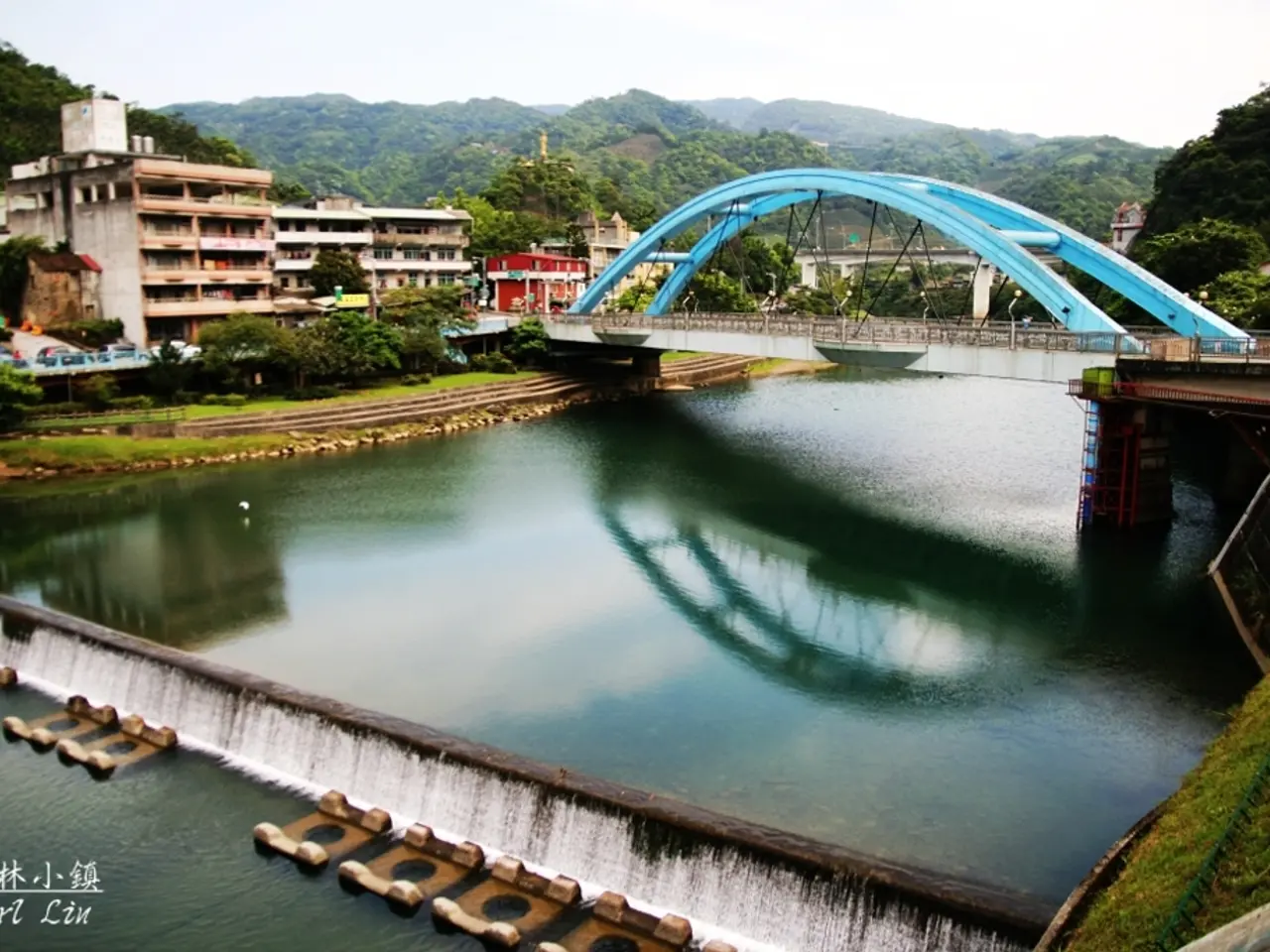Islands in the South Pacific are mysteriously vanishing.
Climate Change Threatens Island Cultures and Societies
The disappearance of islands due to climate change is causing profound cultural and societal implications, affecting communities, heritage, and the identities and sovereignty of island nations. One such example is Nyangai Island in Sierra Leone, which is rapidly losing land area, forcing inhabitants into cramped, deteriorating conditions and threatening the eventual disappearance of their entire community [1]. Similar situations are being seen in other small-island states, which are facing rising sea levels and intensified storms made worse by climate change [3][4].
Forced Displacement and Loss of Homeland
Island residents, such as those on Nyangai Island, are experiencing severe displacement as their homes are inundated or destroyed by flooding and erosion, leading to inevitable forced migration on a mass scale [1]. This displacement disrupts social cohesion and uproots communities physically and culturally.
Cultural Erosion
As islands disappear, so do the unique cultural traditions, languages, and knowledge systems tied intimately to these places. The loss of land threatens the preservation of indigenous identities and heritage [1].
National Existential Threats
Some small island states like Tuvalu, the Maldives, and Kiribati face the possible loss of their entire sovereign territory, raising complicated questions of legal status and future governance if their lands become uninhabitable or submerged [3][5].
Sense of Injustice
Communities on these islands overwhelmingly bear minimal responsibility for global carbon emissions driving climate change yet face its harshest consequences, fostering feelings of injustice and vulnerability [1][3].
Economic and Social Disruption
Loss of land affects local economies dependent on fishing, agriculture, and tourism. Infrastructure destruction further undermines livelihoods and quality of life [1].
Global Responsibility and Aid Debates
Affected publics expect not only local governments but also large polluters and former colonial powers to share responsibility for climate mitigation costs and assistance in adaptation or relocation [3].
Natural processes such as sediment deposit can sometimes temporarily build elevation for some islands but are often insufficient to counteract sea level rise worsened by coral reef degradation and human infrastructure interference [2]. Despite scientific uncertainties about the exact island changes, the overwhelming evidence and lived experiences of these communities reveal a crisis demanding urgent global action to support resilience, adaptation, and, in extreme cases, planned relocation [1][5].
Pacific Islanders' Unique Struggles
Pacific Islanders, who have done the least to contribute to the climate crisis, are experiencing its effects the most. Journalist Lagipoiva Cherelle Jackson, who covers climate change and the environment, emphasizes the nuanced experiences of Pacific Islanders and the importance of understanding their unique struggles with the climate crisis [6].
In her three-part series, "An Impossible Choice," Jackson tells stories of mothers making heart-wrenching decisions due to climate change-induced disasters [7]. For example, a mother named Vanessa had to make the difficult choice to let go of one of her children during a flood, a decision that still brings tears to her eyes [7]. Vanessa and her family eventually migrated to Australia for safety and a legitimate future free from the threat of floodwaters and extreme weather events.
Resilience and Adaptation
Despite the challenges, Pacific Islanders have a unique approach to dealing with the climate crisis, characterized by resilience, laughter, and a focus on survival each day as it comes [8]. Some Pacific islands have created migration patterns or bought land in larger islands to provide temporary solutions for their people [9].
However, migration is a complex issue for Pacific Islanders, as it can rob them of their cultural heritage and spiritual connection to the land [10]. The loss of ancestral bones and spiritual connection to the land is a level of loss that scientists and anthropologists cannot gauge when it comes to the tangible cultural assets of Pacific Islanders [11].
No Clear Solution in International Law
International law has not set forth a precedent or a natural avenue for the people of the Pacific to find refuge when their islands disappear [12]. Volcanic islands like Fiji and Samoa are relatively secure, but atoll nations like Tuvalu, Marshall Islands, and Kiribati have to find their own solutions for their people's relocation [13].
In conclusion, the disappearance of islands due to climate change carries profound cultural and societal implications, including displacement of communities, loss of heritage, and existential threats to the identities and sovereignty of island nations. Urgent global action is needed to support resilience, adaptation, and, in extreme cases, planned relocation.
References: 1. Climate Change Threatens to Erase Pacific Islanders' Homes 2. The Disappearing Islands of Climate Change 3. Pacific Islands Face Existential Threat From Climate Change 4. Climate Change Threatens to Swallow Pacific Islands 5. Climate Change Could Make Many Pacific Islands Uninhabitable 6. Lagipoiva Cherelle Jackson 7. An Impossible Choice 8. Resilience in the Face of Climate Change: Pacific Islanders' Struggles and Solutions 9. Pacific Islanders Are Facing a Climate-Fueled Exodus. Here's What It Looks Like. 10. Migration and the Pacific: The Cost of Survival 11. The Loss of Pacific Islander Cultural Heritage Due to Climate Change 12. The Pacific's Climate Refugees: No Country Will Take Them In 13. Climate Change: Pacific Island Nations Brace for Disappearance
- In the face of climate change, these cultural and societal upheavals, rooted in the displacement of communities and the potential erasure of heritage, are prevalent not just on Nyangai Island, but also in other small island states worldwide [1][3][4].
- Additionally, the global scientific community is emphasizing the necessity of environmental-science policies and legislation to combat climate change, in view of the severity of its effects, such as the disappearance of islands and the consequent cultural and societal erosion [2][5].
- Furthermore, this issue of climate change and its impact on small island states is not restricted to history or regional news; it is a matter of general-news importance, intertwined with politics and policy-making at international levels [6][7].
- Moreover, the escalating crisis of climate change and its consequences, such as the displacement of communities and the threat to cultural identity, necessitate global cooperation and a shared responsibility among nations, particularly the major contributors to greenhouse gas emissions [8][12].








